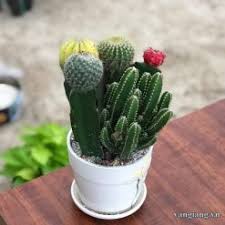
Feng Shui, the ancient Chinese practice of arranging your environment to enhance positive energy (Chi) and bring balance to your life, has gained immense popularity in the modern world. When it comes to the office, the concept of Feng Shui is especially relevant. A harmonious workspace is believed to increase productivity, reduce stress, and promote a positive working environment. In this article, we’ll explore some of the most popular Feng Shui items for the office, how they work, and the benefits they bring to the workplace.
1. The Importance of Feng Shui in the Office
In today’s fast-paced business world, it’s not just about having the right skills or working long hours. The environment in which you work plays a vital role in your productivity and well-being. A chaotic, cluttered, or disorganized office can result in feelings of stress and overwhelm. By incorporating Feng Shui principles, such as balancing the five elements—wood, fire, earth, metal, and water—you can create a more positive and productive workspace.
Feng Shui principles suggest that certain objects and arrangements can help you harness the flow of energy to support your career growth, mental clarity, creativity, and overall well-being. Here are some Feng Shui items commonly used in office spaces:
2. The Feng Shui Desk
The desk is the central piece of your office and is where most of your work happens. According to Feng Shui, the way your desk is arranged can significantly impact your productivity and career prospects. An ideal desk is one that faces the door but is not directly in line with it, known as the “command position.” This position allows you to feel in control and aware of your surroundings, fostering a sense of security and confidence.
Beyond the desk placement, certain objects are often used to enhance the energy of the workspace:
a. Crystals and Gemstones
Crystals are often used in Feng Shui to enhance specific energies. For example:
- Amethyst: Known for its calming properties, amethyst can help reduce stress and anxiety. It’s also believed to promote clarity and creativity, making it an ideal stone for those working in creative fields.
- Citrine: A symbol of wealth and abundance, citrine is often placed on the desk to attract prosperity and success.
- Clear Quartz: Considered a master healer, clear quartz is believed to amplify energy and intention, making it an excellent addition to any office for maintaining positive energy.
b. Plants
Plants are among the most popular Feng Shui items for the office due to their ability to introduce natural energy, or Chi, into a space. According to Feng Shui, plants represent growth and vitality, and they can improve air quality as well.
- Lucky Bamboo: Lucky bamboo is one of the most well-known Feng Shui plants. It’s believed to attract wealth and positive energy. The number of stalks in the plant is important, as each number has a specific meaning. For example, three stalks represent happiness, five stalks represent health, and eight stalks represent wealth.
- Money Tree (Pachira Aquatica): The money tree is a symbol of prosperity and is commonly placed in offices to attract financial success. It’s especially powerful when placed in the southeast corner of the office, which is associated with wealth in Feng Shui.
- Snake Plant (Sansevieria): This hardy plant is known for its ability to purify the air, making it an excellent addition to any workspace. It’s also considered a symbol of protection and good fortune.
c. Water Features
Water is another essential element in Feng Shui, symbolizing flow, abundance, and prosperity. Incorporating water elements into your office space can have a calming and invigorating effect.
- Fountain: A small indoor fountain can be placed on the desk or in the corner of the room to promote the flow of positive energy. It is especially beneficial for attracting wealth and success.
- Fish Tank: A fish tank, particularly with goldfish, is a common Feng Shui remedy for attracting good luck and prosperity. The movement of the fish in the water promotes positive energy flow.
3. The Power of Colors in Feng Shui
Colors play an essential role in Feng Shui as they can evoke certain moods and energies. In the office, colors can influence creativity, focus, and calmness. Here are some colors commonly used in Feng Shui and their meanings:
- Blue: Represents calmness, focus, and clarity. Ideal for enhancing concentration and communication. It’s a good color for offices where focus and problem-solving are key.
- Green: Symbolizes growth, renewal, and vitality. Green is great for fostering creativity and balancing energy in the workspace. It’s often used in offices where innovation and creativity are essential.
- Red: A color of energy, passion, and action. While it can be stimulating, too much red can create tension, so it’s best used as an accent color to energize the space without overwhelming it.
- Yellow: Represents joy, optimism, and mental clarity. Yellow is ideal for promoting clarity and positivity in the workspace, especially for those working on complex tasks or with a team.
- White: Symbolizing purity and cleanliness, white promotes clarity and peace. It’s a good choice for a clean and fresh workspace, especially in high-stress environments.
4. Symbols of Prosperity and Protection
Feng Shui is rich with symbols that are used to promote prosperity, protection, and success. Incorporating these symbols into the office can bring an added layer of positive energy.
a. Wealth Symbols
Certain symbols in Feng Shui are known to attract wealth and prosperity. Some of the most popular include:
- The Wealth Bowl: A bowl filled with coins, crystals, or other symbolic items is used to attract wealth. Placing it in the southeast corner of the office can help activate the wealth energy.
- Gold Coins or Ingots: Gold is a powerful symbol of wealth in Feng Shui. Placing gold coins or ingots in the office is believed to draw financial success.
b. Protection Symbols
Protective symbols are used to safeguard the office and its occupants from negative energies. Some of the most common protection symbols include:
- The Fu Dogs (Guardian Lions): Fu dogs are often placed at the entrance of an office to protect against negative influences. These statues are believed to guard against harm and maintain the integrity of the space.
- The Bagua Mirror: Used to deflect negative energy, a Bagua mirror is often placed outside or above the door to protect the office from bad Chi. It’s important to use this mirror properly, as it’s powerful and should not be overused.
5. The Role of Lighting and Natural Elements
Feng Shui emphasizes the importance of lighting and natural elements in creating a harmonious environment. Good lighting can enhance energy flow and increase productivity, while poor lighting can cause fatigue and stress.
a. Natural Light
Natural light is one of the best ways to enhance the Feng Shui of an office. Exposure to natural light is known to boost mood, improve focus, and increase energy. If possible, arrange your desk near a window to allow for plenty of daylight.
b. Artificial Lighting
When natural light is limited, it’s important to use artificial lighting wisely. Soft, warm lights are preferred over harsh fluorescent lighting, which can create an imbalanced energy in the room. Desk lamps with adjustable settings allow you to control the lighting based on your needs.
c. Open Space
Keeping the workspace open and uncluttered is key to good Feng Shui. A cluttered office can create stagnant energy and hinder creativity and productivity. Ensure that your office is well-organized, with clear pathways and ample space for movement.
6. Conclusion: Creating Your Feng Shui Office
Incorporating Feng Shui items into your office is about more than just adding decorative pieces. It’s about creating an environment that supports your well-being, productivity, and success. By choosing the right plants, colors, symbols, and arranging your workspace thoughtfully, you can harness the positive energy of Feng Shui and transform your office into a space that fosters creativity, prosperity, and harmony. Whether you’re working from home or in a corporate setting, these Feng Shui practices can help create a balanced and vibrant workspace that benefits your career and your personal well-being.









